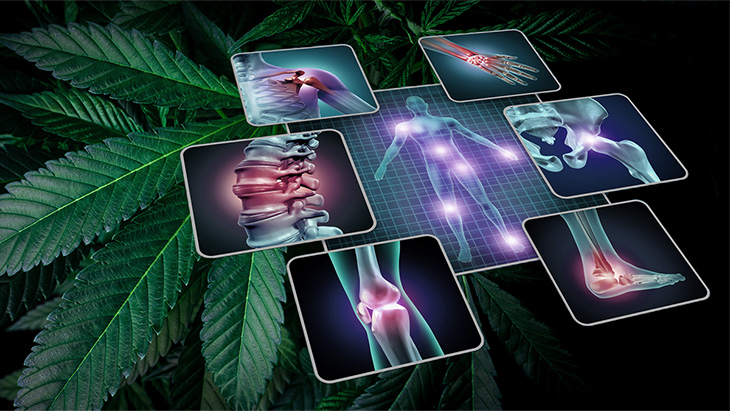
Nearly one in three patients with chronic pain use cannabis as an analgesic agent, and many of those who do substitute in place of opioids, according to data published in the journal JAMA Network Open.
Researchers with the University of Michigan at Ann Arbor and the Johns Hopkins School of Public Health in Baltimore surveyed 1,724 adults suffering from chronic pain conditions who resided in medical cannabis access states.
Thirty-one percent of respondents acknowledged having previously used marijuana to manage their pain, and 23 percent identified as current medical cannabis consumers.
The findings are consistent with numerous other studies documenting that patients frequently use cannabis for pain mitigation, and that many patients either reduce or eliminate their consumption of opioids and other medications following the initiation of cannabis therapy.
Commenting on the findings, NORML’s Deputy Director Paul Armentano said: “Cannabis has established efficacy in the treatment of multiple conditions, including chronic pain, and it possesses a safety profile that is either comparable or superior to other controlled substances. So it is no wonder that those with legal access to it are substituting cannabis in lieu of other, potentially less effective and more harmful substances. As legal access continues to expand, one would expect the cannabis substitution effect to grow even more pronounced in the future.”
Numerous placebo-controlled trials document the ability of either inhaled or vaporized herbal cannabis to significantly mitigate pain in various patient populations, including those suffering from HIV, diabetes, spinal cord injury, or with severe treatment-resistant neuropathy (nerve pain). These positive results have been replicated in clinical trials utilizing relatively low doses of cannabis as well as in trials using plant-derived cannabis extracts.
A 2017 report by the National Academy of Sciences, Engineering, and Medicine concluded that “conclusive or substantial evidence” exists for cannabis’ efficacy in patients suffering from chronic pain, stating, “Patients who [are] treated with cannabis or cannabinoids are more likely to experience a clinically significant reduction in pain symptoms.”
Among patients registered to use medical cannabis in the United States, most consume marijuana products to treat chronic pain conditions.
Full text of the study, “Use of cannabis and other pain treatments among adults with chronic pain in US states with medical cannabis programs,” is online here.
Additional information on cannabis and pain management is available from NORML’s publication, Clinical Applications for Cannabis and Cannabinoids. Further information is also available from NORML’s fact-sheet, ‘Relationship Between Marijuana and Opioids.’
Related
Medical Disclaimer:
The information provided in these blog posts is intended for general informational and educational purposes only. It is not a substitute for professional medical advice, diagnosis, or treatment. Always seek the advice of your physician or other qualified healthcare provider with any questions you may have regarding a medical condition. The use of any information provided in these blog posts is solely at your own risk. The authors and the website do not recommend or endorse any specific products, treatments, or procedures mentioned. Reliance on any information in these blog posts is solely at your own discretion.






